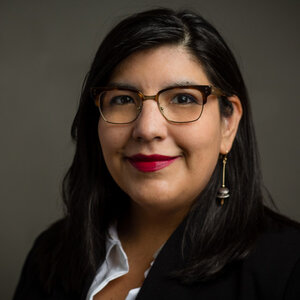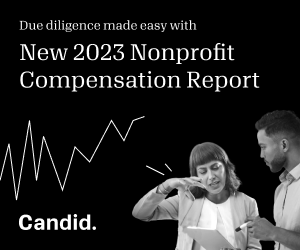How gender justice funders are taking historic action on policy

Feminist philanthropy has been building power on the ground in every region of the globe for decades—collectively moving over $1.4 billion annually to advance equity and justice for all.
Remarkably, national philanthropic policy conversations on economic mobility, health care, the environment, and other critical issues have been limited to taxes and regulations—ignoring the impact of gender in addressing the complex issues our communities face.
That’s why on September 12, for the first time ever, the Women’s Funding Network (WFN), together with the National Women's Law Center, Global Fund for Women, Justice and Joy National Collaborative, Justice for Migrant Women, National Organization for Women, and Mosaic will gather for Feminist Philanthropy Hill Day, a unified platform that establishes a power base of funders and donors who educate and inspire our nation’s political leaders to take a gender-informed approach to policy in the U.S. and around the world.
As the ground shifts under our feet toward extremism and rollbacks of human rights, philanthropy must convene in new ways to leverage our full voice and influence. Just imagine: How much change could feminist philanthropy make if we came together on Capitol Hill, the center of decision-making power for our nation, with a collective voice and a collective agenda for the first time in history?
In addition to more than 25 meetings with federal policy makers, Feminist Philanthropy Hill Day will feature a Senate briefing in two parts: a discussion with national experts about domestic policy solutions to improve pay equity, child care, maternal and child health, reproductive rights, and other critical issues facing women, girls, and gender nonconforming people; and a discussion about building a comprehensive feminist foreign policy agenda to advance gender equity, diversity, and intersectionality across the world, highlighting the interconnectedness between climate resilience, feminism, and U.S. foreign policy.
Why now is the moment for feminist philanthropy action
The world is on fire. And the United States is home to the largest philanthropic institutions on the planet with the resources, partners, and influence to get the blaze under control. Yet a Giving USA report showed 2022 was one of the worst years in philanthropy’s history, in which giving dropped by more than 10 percent; early 2023 data looks to be similarly bleak.
Feminist philanthropy, however, has continued to face every crisis on the front lines. For example, a 2022 survey by WFN showed that 70 percent of members funded and/or advocated for reproductive justice, including abortion care, before Dobbs; today, it’s risen to about 90 percent. This is despite the fact that many in our network are located in states with the most pernicious bans on reproductive health care.
It’s clear that people who oppose our goals of equality for women, girls, gender nonconforming people, people of color, and the LGBTQIA+ community are actively advocating for restrictive policies and spending big. Movements for reproductive justice are being outspent roughly six times by those who oppose bodily autonomy. Meeting this moment to create the world we want will require a coordinated, thoughtful investment from philanthropy like never before—and feminist philanthropy is leading the way.
Why we need a feminist foreign policy
A feminist foreign policy is “implemented through defense, diplomacy, foreign assistance, humanitarian assistance, immigration, and trade” and “will advance gender equality and broader goals around diversity, intersectionality, and representation,” according to a recent report from the Coalition for a Feminist Foreign Policy. But their review shows that while the Biden administration has made impressive strides, we still have far to go if we’re going to adopt a foreign policy stance that is truly rooted in feminism. Immigration, climate change, and economic opportunities disproportionately affect women, girls, and gender nonconforming people; a staggering 80 percent of people displaced by climate change are women and girls. Applying a feminist lens to U.S. foreign policy can truly change the trajectory of the world.
Considering that our border countries, Canada and Mexico, have already announced their adoption of feminist foreign policies, what does it mean that the U.S. has not? What can U.S.-based gender justice funders do to support the feminist foreign policy framework across domestic policy objectives at the national and state level? How can we unite to surface global leadership in Canada, Mexico, Australia, Asia, and Europe to build momentum with U.S. policy makers?
Together at the Feminist Philanthropy Hill Day, we’re uniting incredible partners to raise real solutions for enacting a feminist foreign policy: the Global Fund for Women, the Feminist Foreign Policy Collaborative, Equality Fund, the International Women’s Development Agency, MADRE, and Ipas, among others.
Networked power formalized for change
When we operate alone or in silos, we absolutely cannot make the impact that we could when we share resources and knowledge.
For example, in March, the Arkansas legislature introduced SB71, attempting to end affirmative action in the state. Anna Beth Gorman, CEO of the Women’s Foundation of Arkansas, said the bill’s passage “would have a profound effect on our ability to work with state and local governments, and it would negatively impact the economic mobility of women and people of color.” The bill passed in the state Senate by one vote and headed to the House. The Women's Foundation of Arkansas wanted to get involved but had never engaged in formal advocacy before and wasn’t sure what steps they could take to fight the bill, a situation many smaller funds face. Gorman reached out to WFN members, asking for help in understanding how the organization could navigate lobbying without jeopardizing their nonprofit status.
Jo Giles, executive director of the Women’s Fund of Omaha, stepped up and walked Gorman through some immediate steps. A few days later, the Women’s Foundation of Arkansas had formally retained a lobbyist who worked with legislators to outline the bill’s impact—and the bill was defeated.
This type of network support for local and regional policy efforts has been happening for about 40 years. Feminist Philanthropy Hill Day will formalize this power at the national level—as over 250 participants gather to share resources, strategies, and agenda to become stronger together.
When we gather on the Hill, it will be our chance to unite feminist philanthropy’s engagement of our political leaders and remind them that when you center the needs of women, girls, and gender expansive people, you uplift entire communities, here and around the world.
Elizabeth Barajas-Román is president and CEO of the Women’s Funding Network, the world’s largest philanthropic alliance for gender equity.








Relationships are infrastructure: Trusting grassroots partners